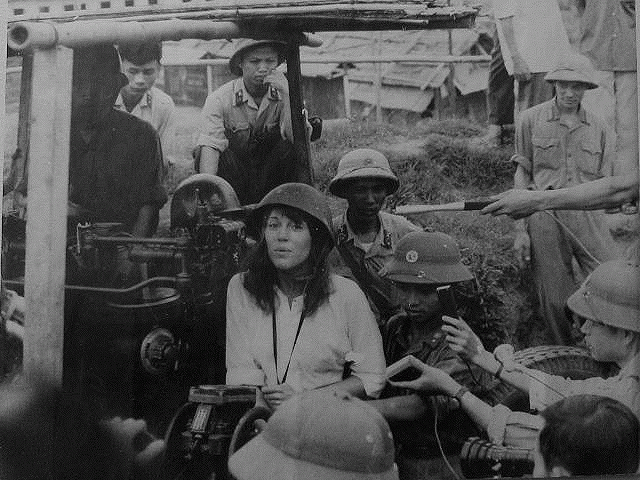
It's been more than 40 years since actress Jane Fonda visited North Vietnam during the height of the Vietnam War—but the decision that earned her the nickname "Hanoi Jane" has yet to be forgotten, or forgiven, by the American public. When Fonda spoke at an event in Maryland last Friday, some 50 military veterans and their supporters showed up in protest, carrying signs that read "Forgive? Maybe. Forget? Never."
Fonda told the audience that her appearance in Vietnam was a "huge mistake," acknowledging that she understands the anger directed at her. But she also, albeit subtly, questioned the country's reflexive conflation of anti-war and anti-soldier sentiments.
"But those people out there . . . I’m a lightning rod,” Fonda told the audience. “This famous person goes and does something that looks like I’m against the troops, which wasn’t true, but it looked that way, and I’m a convenient target. So I understand.”
A few years ago, Fonda made similar statements on her personal blog when addressing the incident, writing: "The lies distort the truth of why I went to North Vietnam and they perpetuate the myth that being anti-war means being anti-soldier."
That "Forget? Never" sign is surely prescient, and one imagines this will not be the last time Fonda faces residual backlash and ire. Meanwhile, all these decades later, the incident continues to raise important questions about the very nature of American patriotism.
